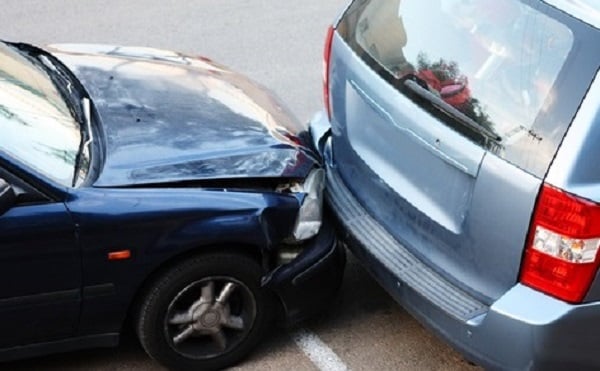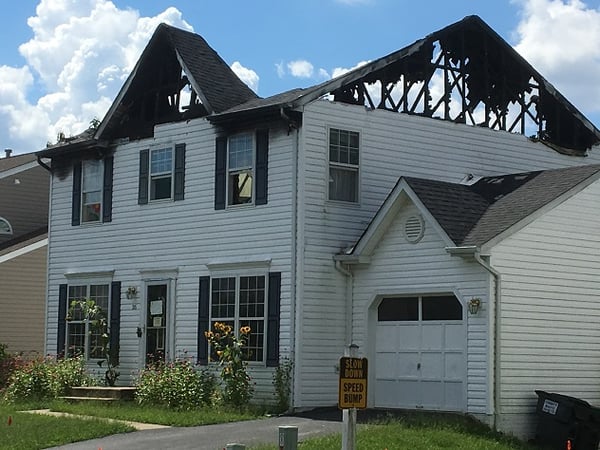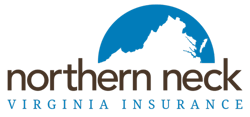
What is a homeowners or car insurance lapse?
Whether you miss a payment, cancel your home or car insurance, or get canceled by your insurance carrier before securing a new policy to replace it, you may have what's called a "lapse" in your insurance coverage. That leaves your home and car vulnerable to serious financial risk and it also makes you financially liable to others. This is more important right now than ever. Home insurance rates are increasing as we try to recover from the aftermath of the pandemic, severe weather events, and inflation. The pandemic affected car insurance, but changes in driving behavior, more serious crashes, and economic factors impacted the industry as well. These factors are creating challenging conditions for insurers and consumers of insurance.
Having a lapse in home or car insurance can create much more serious problems than just the temporary lack of insurance protection. Let's cover why and how a lapse of home or car insurance can impact you, what you can do to prevent it, and what you can do if you've had one.

Why should you avoid a home or car insurance lapse?
An car insurance lapse may be illegal
Car insurance coverage is mandated by law in Virginia. Among the many laws affecting Virginia drivers, you must certify you are covered by the minimum car insurance requirements. Failing to maintain the required coverage can result in:
- License suspension
- Steep fines
- Legal trouble
Mortgage lenders can legally force borrowers to carry insurance
Home insurance may not be required by law, but lenders need to protect their investments just as much as you do. In the event your house burns down or is badly damaged homeowners insurance safeguards them against financial loss. By keeping your home insurance active, you satisfy the conditions of the loan and avoid defaulting on your loan or buying a more expensive policy. If you have a lapse in home insurance, lenders have the right to force-place insurance or send your loan into default. This can cause your credit score to decrease significantly and increase the risk of losing your home to foreclosure.

An insurance lapse can put you at great financial risk
Home insurance lapse
Your home is most likely your largest asset. But a standard homeowners policy doesn't just insure the structure. It also can cover your belongings in case of a disaster, fire, or theft and offers liability protection in the event of an injury or property damage lawsuit. Without your home insurance, you risk losing everything, and this scenario can put you in a potentially catastrophic financial situation.
Ask yourself if you lost everything in a devastating fire, could you afford to start from scratch? What if someone gets injured on your property and sues you and you don't have home insurance? If that happens, anything you own could be used as leverage in the lawsuit, including your home and car, your personal business, and even future wages.
Car insurance lapse
When it comes to car insurance, the state minimum insurance requirement we mentioned does not provide adequate financial protection for most Virginians. Cheap car insurance is usually not worth it, and with car crashes more expensive than ever, having a wider financial safety net may be necessary.

Finding comparable home or car insurance after a lapse may be challenging
When you let your home or car insurance lapse, you may be unable to reinstate your policy with the current carrier. This is especially true if:
- Your insurance company chooses to cancel your policy
- The grace period for a missed payment has passed
- You have a history of missed payments.
In the event that you do find an insurer, you may end up having to pay higher premiums for subpar coverage. Many insurers have tightened underwriting requirements in today's struggling insurance market. That means they are considering more factors when deciding on what rates to charge and what risks to insure. Insurance carriers often view lapses as high-risk gaps. Some are limiting how many new policies they are issuing altogether, making even getting an insurance quote after a lapse very challenging.

How to avoid a lapse in home and car insurance
There are easy ways to avoid a lapse in insurance. We highly recommend consulting a good independent agent in your Virginia community. Here are a few suggestions for staying on top of your insurance coverage and keeping it active.
Never miss a payment
Insurance carriers are required by law to offer a grace period for missed insurance payments and to notify you that your payment is overdue. It's critical to pay your premium within that grace period. If you do miss a payment, call your carrier as soon as possible and ask to be reinstated. When reinstating within the grace period, you can pay the past-due balance and be covered without any lapse. If you can't get your policy reinstated due to time passed, you need to start a new policy with your carrier or a new carrier.
Signing up for automatic payments is a great way to stay current with your insurance policy and avoid missing a payment. Contact your carrier and find out how to set up automatic withdrawals from your checking or savings account on a date that works best for you. Make sure your contact information with your carrier is up-to-date so that if you do miss a payment, you are notified immediately. If you are struggling financially, let your insurance carrier know as soon as possible.
Prevent a lapse in coverage when changing insurance carriers
If you're shopping for a new home and car insurance, it's important to coordinate the transition with both insurance carriers. You may change home or car insurance carriers anytime, but there are steps you should take to guarantee continuous coverage and avoid extra fees.
- Check to see if there is a cancellation fee for terminating coverage before the end of the policy period. An independent insurance agent can look into this for you, or you can call your carrier. If your insurance carrier initiates the cancelation, there are no fees. Either way, you are entitled to a prorated refund for unused premium.
- Avoid canceling your old policy before coverage begins on the new one by paying attention to your policy's "effective dates". A licensed agent can also ensure there is no lapse of coverage.
- Make certain you're not compromising coverage or protection. It helps to have a copy of your current insurance policy while shopping so you are actually comparing apples to apples. A local agent can help you compare policy limits, deductibles, exclusions, endorsements, and types of insurance, such as standard home insurance vs. replacement home insurance or full coverage car insurance vs. liability and collision car insurance.

Avoid a lapse in auto insurance when buying a new car
If you're buying a new vehicle, the amount of time you are allowed to drive it before adding it to your existing car insurance policy is called a grace period. Depending on your carrier, you may have anywhere from one week to 30 days to add the new or used car to your policy. Most car insurance companies will extend coverage to your new vehicle during this period in good faith. This comes in handy over weekends and holidays, but you should call your carrier as soon as possible.
If you do not have existing car insurance, you would need to procure a new policy before leaving the dealership or get an insurance quote prior to buying the car. The dealer will confirm your insurance status before you drive off, especially if you lease your car.
Safeguard against an insurance lapse during long-term travel or overseas deployment
In cases where you don't think you need insurance due to military or job assignment or extensive travel, call your insurance carrier and let them know. Both car and home insurance will be affected by your absence.
Most standard homeowners insurance policies won’t cover fire, vandalism, liability, or other types of claims on a property left empty for 30 or more days. Leaving your home unoccupied presents a greater insurance risk than occupied homes for many reasons, including more opportunities for theft and fewer opportunities to prevent or stop damage. For that reason, your home insurance can be canceled. Instead, get a vacant home insurance policy to ensure your home is protected while you're away.

Notify your insurance company if your car will be sitting unused or placed in storage. Carriers can make arrangements to suspend part of your insurance coverage ahead of time, but you may want to avoid a complete lapse in car insurance.
Even while you're away, you must maintain vehicle liability insurance that meets Virginia's required minimum coverage. If you cancel insurance because your vehicle has been placed in storage or will not be driven while you are away, you also must deactivate your plates and registration. This will allow you to keep your license plates during the period of non-use and avoid severe penalties if the vehicle is found uninsured. Keep in mind you may pay a higher insurance rate when you return and purchase or activate car insurance again. Insurance companies may consider you a riskier driver than those who keep active policies.
If you are keeping your car at home while traveling or deploying, also consider the risks of suspending coverage. You may not be covered for damage done to your vehicle outside of driving activity due to weather, floods, fire, and earthquakes, or acts by another individual, such as vandalism or theft. If you want to protect against this, you will need to maintain comprehensive coverage in addition to the minimum state coverage while you're away.
What to do if you've experienced a lapse in home or car insurance
Contact your insurance agent to see if the lapse can be rescinded.
If you missed a premium payment, there may be a short homeowners insurance grace period before coverage is canceled. If you receive a warning letter for non-payment, you should act fast to avoid a lapse in coverage. Reinstatement isn’t always possible, especially if the lapse was for more than a few days or if your policy has a history of reinstatements to avoid a lapse.
Collect new quotes from a local independent agent.
If you can not have your policy reinstated, agencies will have insurance companies that will insure you after a lapse. Be open about the lapse so you don’t waste time getting quotes that will end up being ineligible. Choose the best coverage fit and set the effective date as soon as possible so you can get coverage in place.
Let your lender know you're covered again
Your mortgage company will most likely require proof of insurance. Providing the new policy details can prevent or stop your lender from placing force-placed insurance on your home, which can be costly and usually does not provide adequate coverage for you, the borrower.
Look for insurance savings
It may take a few years to lower your insurance rates after a lapse, but finding an alternative quickly is vital financial protection. If you are struggling with the cost of your home insurance, finding ways to save on your premium could bring your budget some relief in the interim.
THE NORTHERN NECK INSURANCE INTEGRITY PROMISE — We pledge to provide straight talk and good counsel from our NNINS Virginia insurance experts through our blog. While we hope you find this to be a helpful source of information, it does not replace the guidance of a licensed insurance professional, nor does it modify the terms of your Northern Neck Insurance policy in any way. All insurance products are governed by the terms in the applicable insurance policy.


